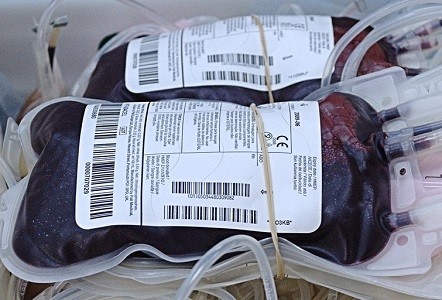
The production of artificial blood in industrial scale like that in factories could soon be a reality, once artificial blood produced from human stem cells is successfully transfused in patients. It is the latest breakthrough among scientists re-engineering the human body.
A team of researchers working on the £5 million program, funded by the Wellcome Trust have produced red blood cells that are suitable for clinical transfusion, The Telegraph quoted Marc Turner, the lead researcher.
"Although similar research has been conducted elsewhere, this is the first time anybody has manufactured blood to the appropriate quality and safety standards for transfusion into a human being," said Turner.
The trial is expected to conclude by late 2016 or early 2017 and the blood would be tested for treating patients with Thalassaemia, a blood disorder that requires regular transfusions, according to Turner. Researchers will then monitor the behavior of the artificial blood cells in those patients.
The technique emphasizes on manufacturing disease-free, limitless supply of type-O blood, which is compatible with all patients.
"Although blood banks are well-stocked in the UK and transfusion has been largely safe since the Hepatitis B and HIV infections of the 1970s and 1980s, many parts of the world still have problems with transfusing blood," Turner added.
However, industrial production of manufactured blood is quite a challenge as the demand for blood transfusion is extremely high and Turner's laboratory conditions can't meet with that of industrial scale. "A single unit of blood contains a trillion red blood cells. There are 2 million units of blood transfused in the UK each year," he explained.
At present, the transfusion cost is approximately £120 for a single unit of blood. But, if the technique is scaled up in industrial level, there is a possibility of reducing the costs considerably.
"One should not underestimate the challenge of translating the science into routine procedures for the clinic. Nowhere is this more apparent than in the challenge Professor Turner and colleagues have set out to address, which is to replace the human blood donor as the source of supply for life-saving transfusions." said Ted Bianco, Director of Technology Transfer at the Wellcome Trust.
(ED:VS)

















